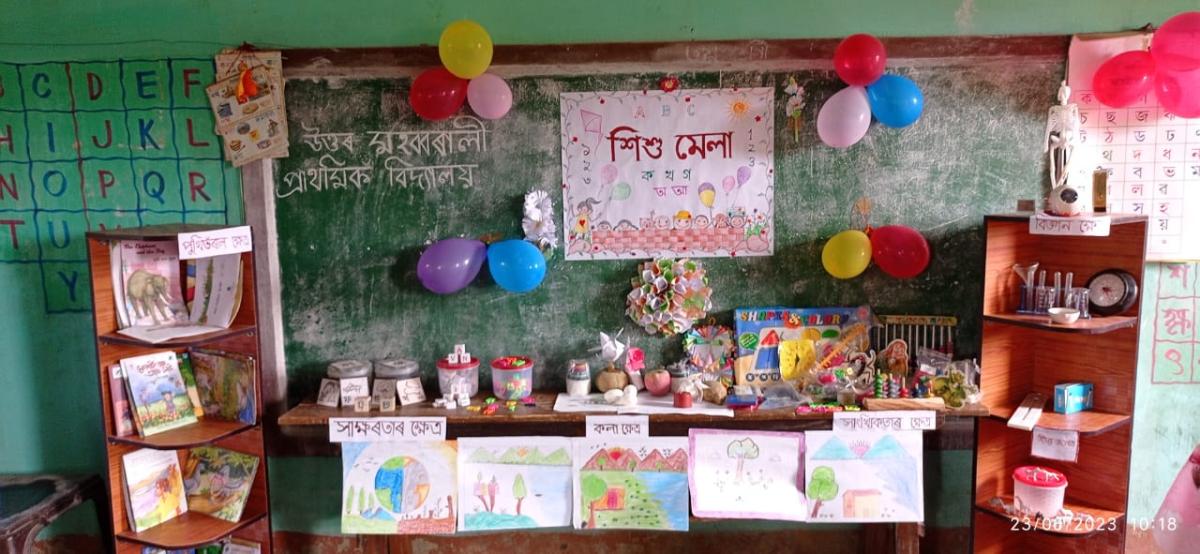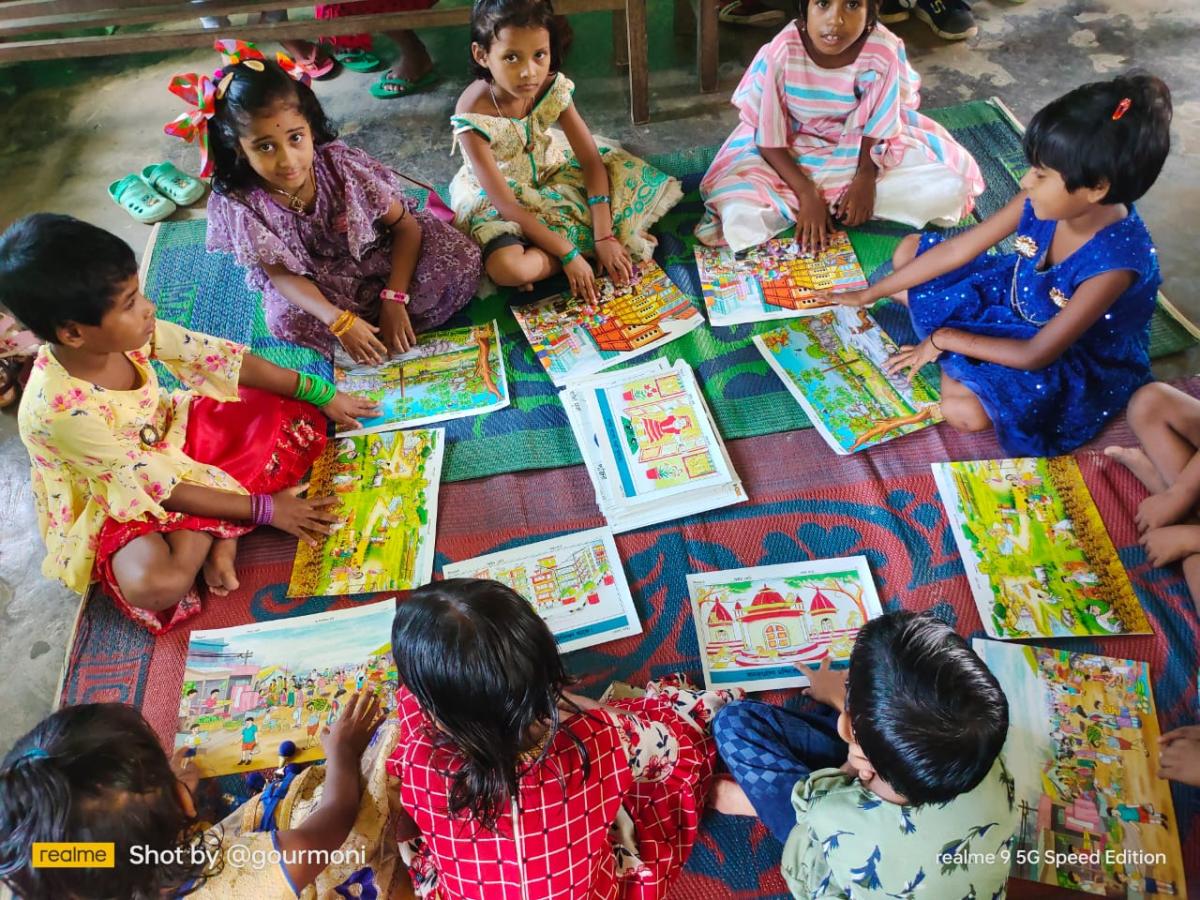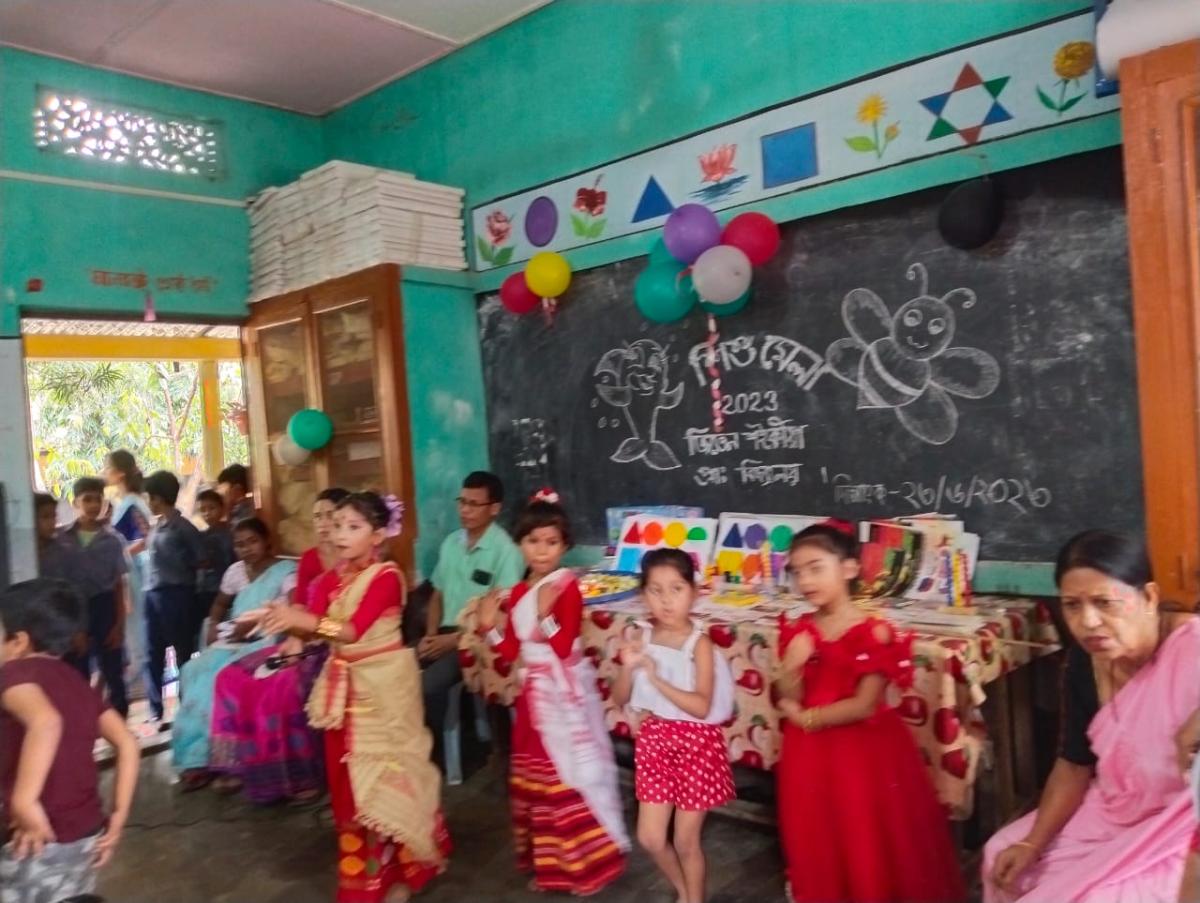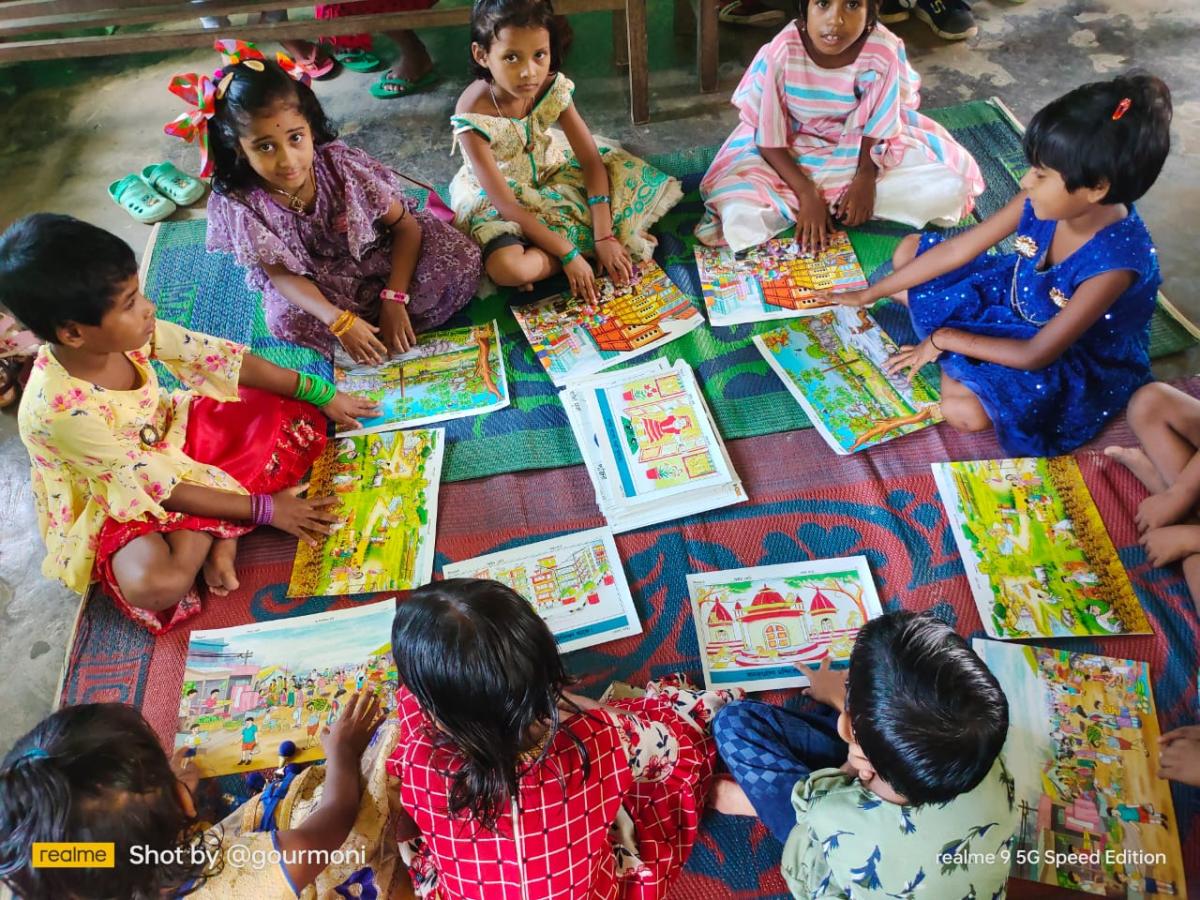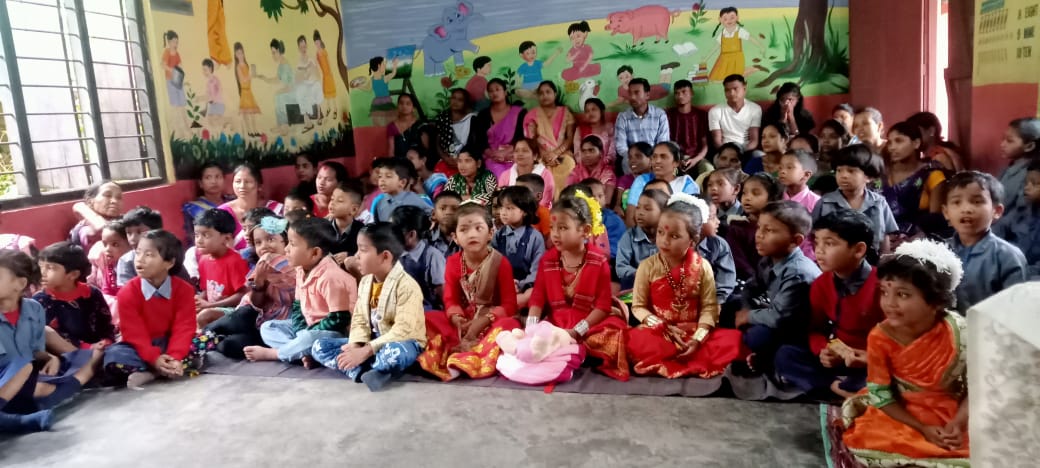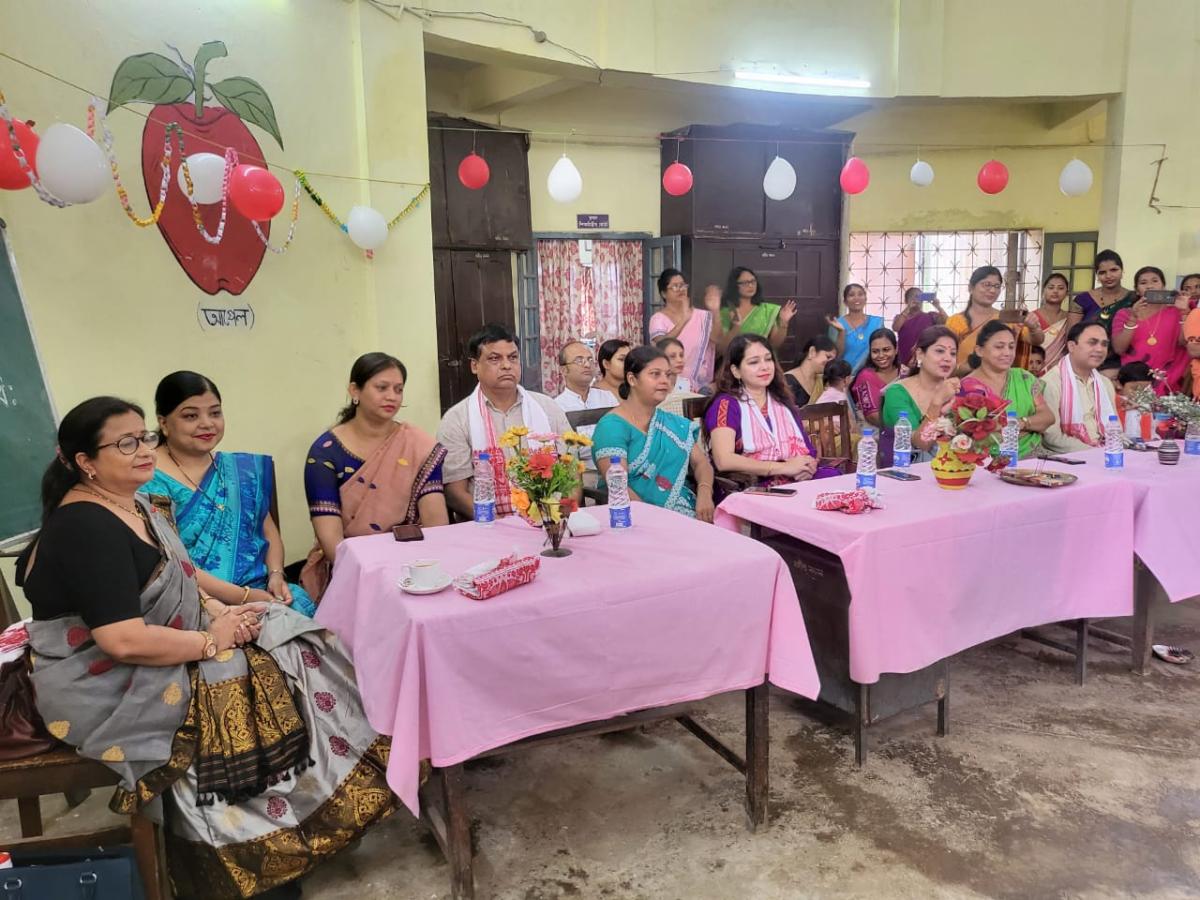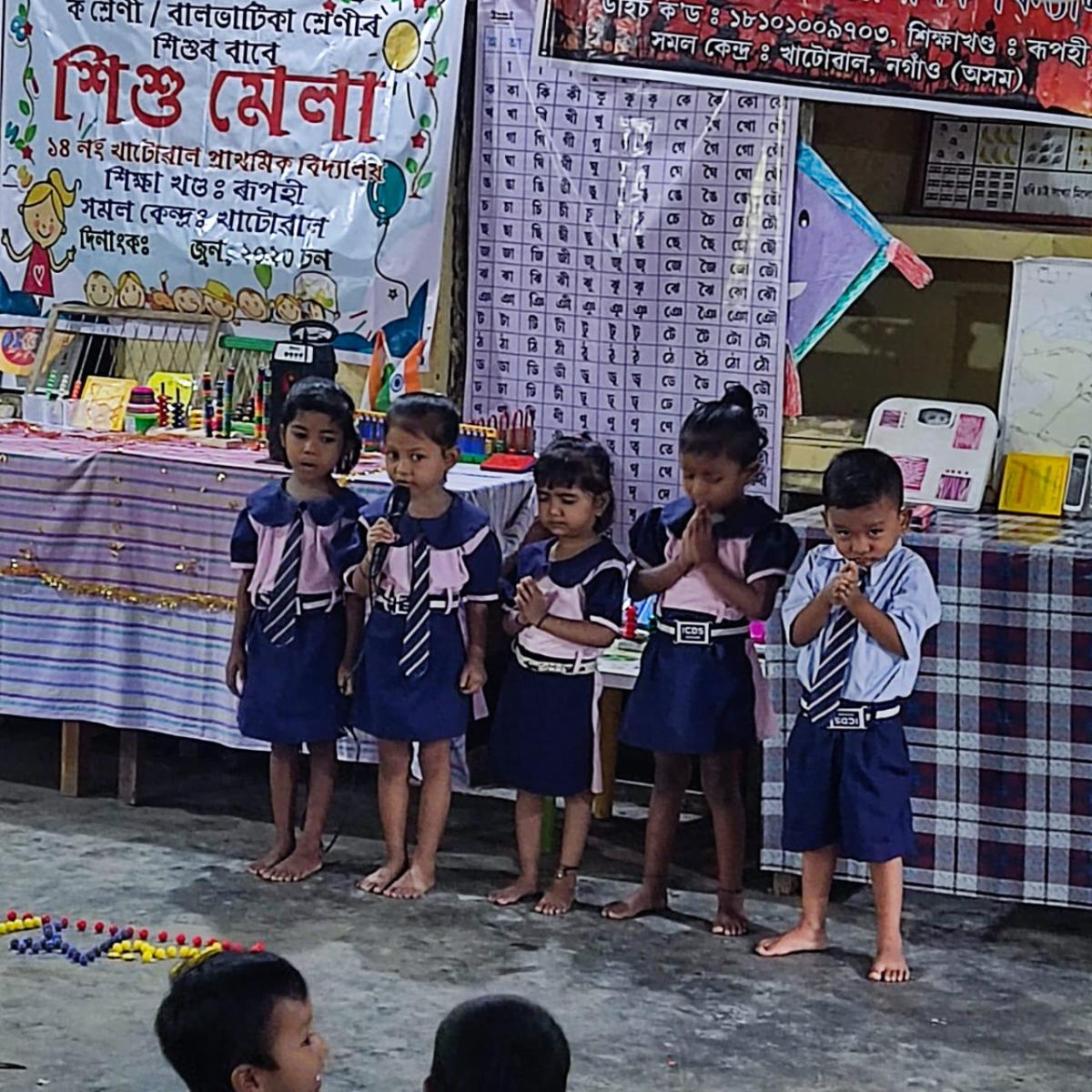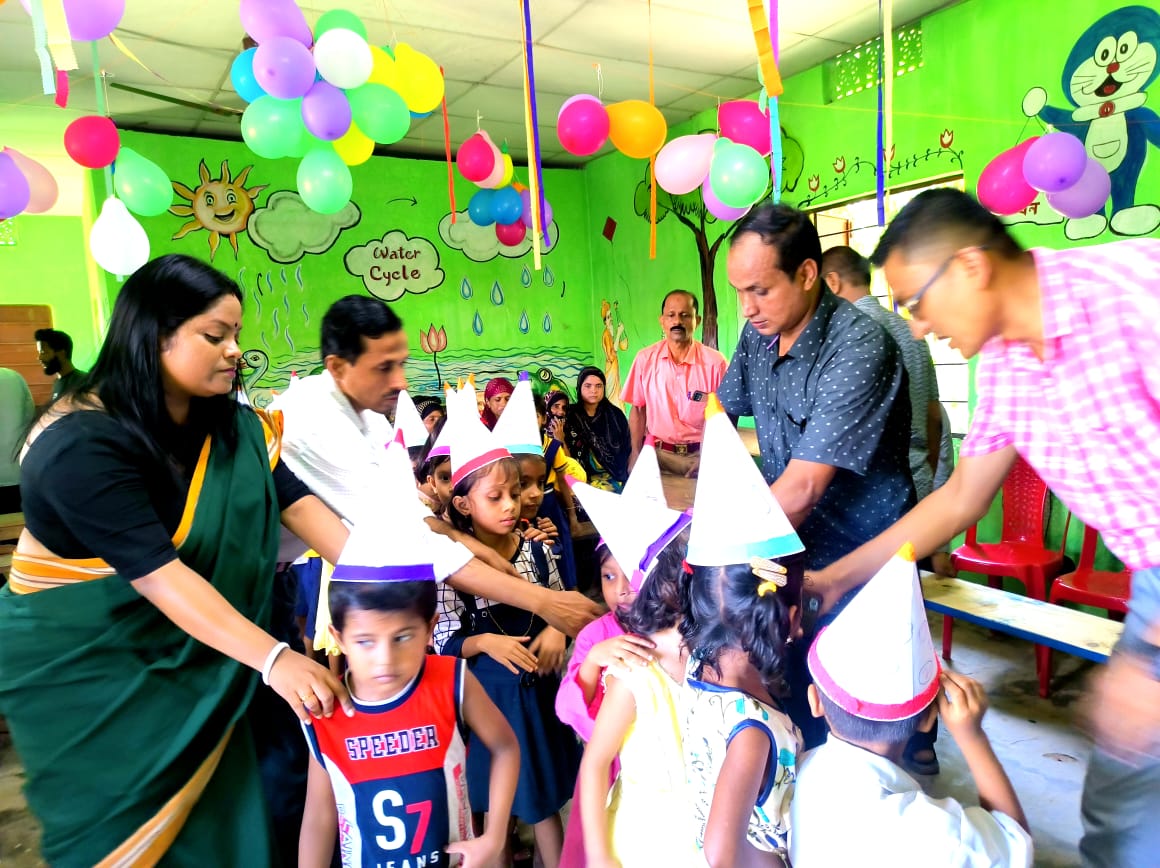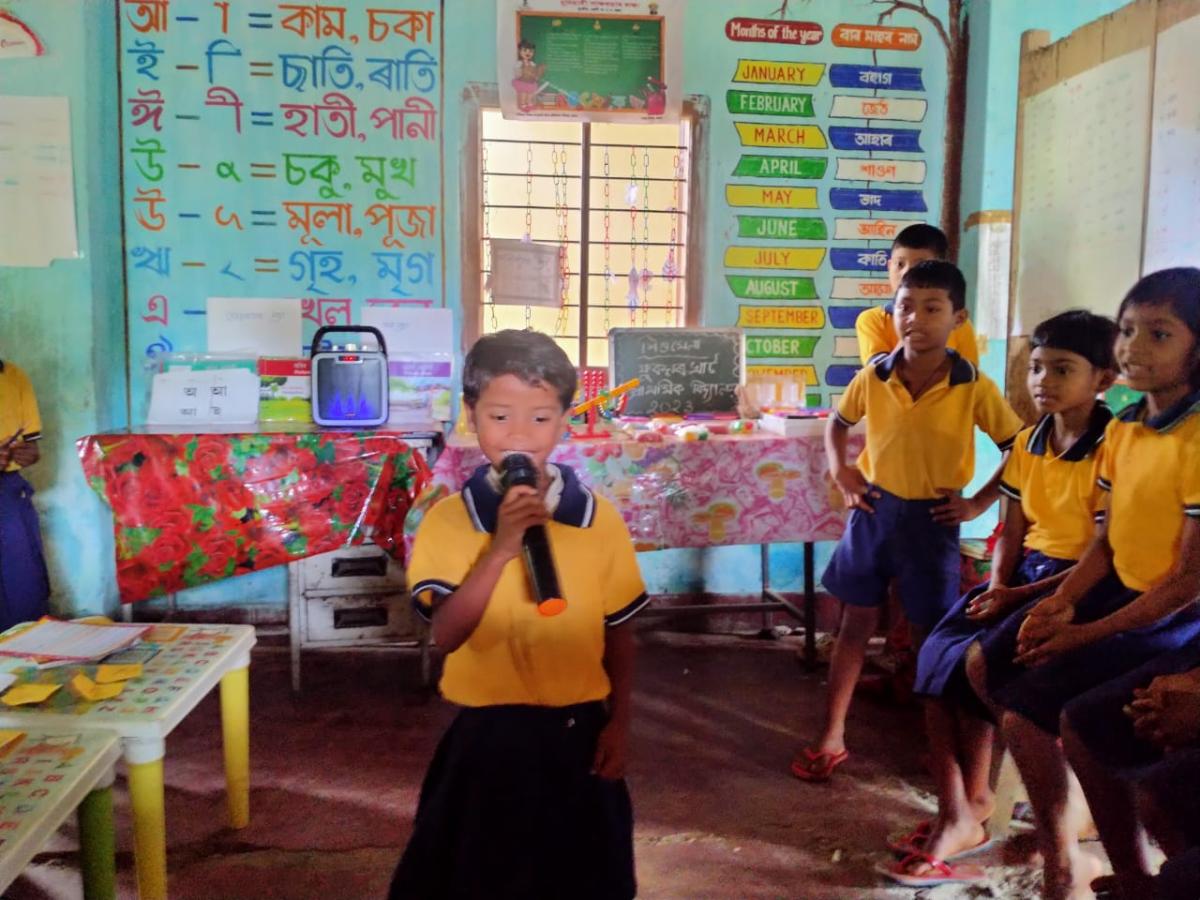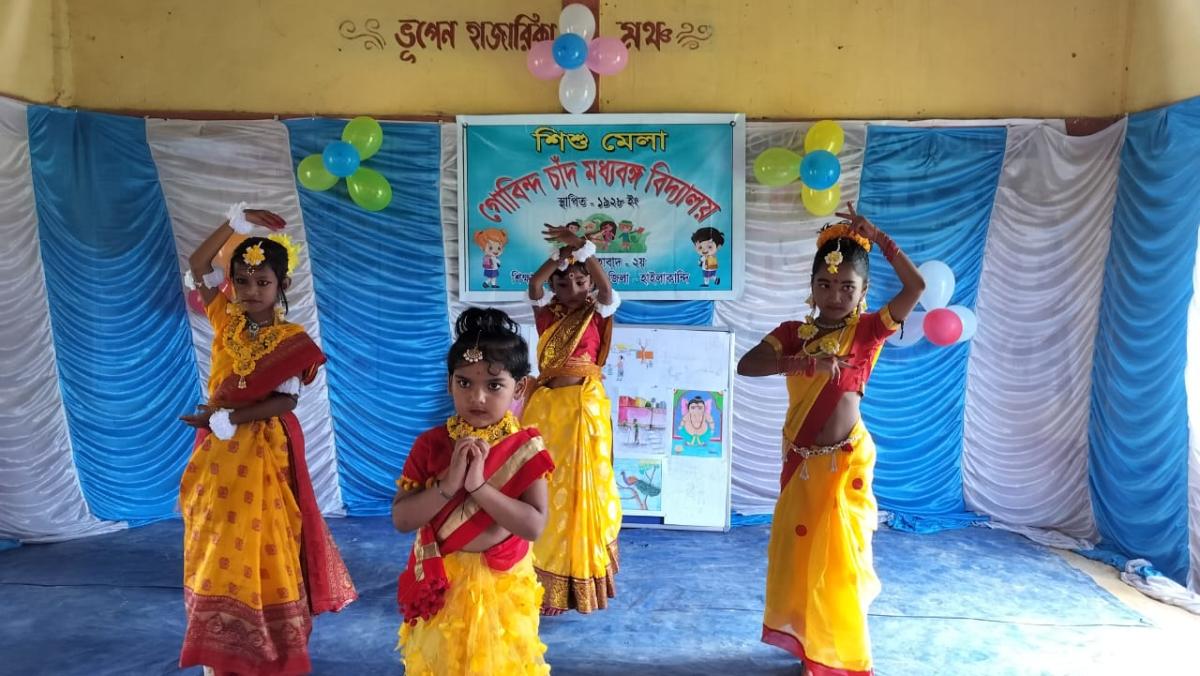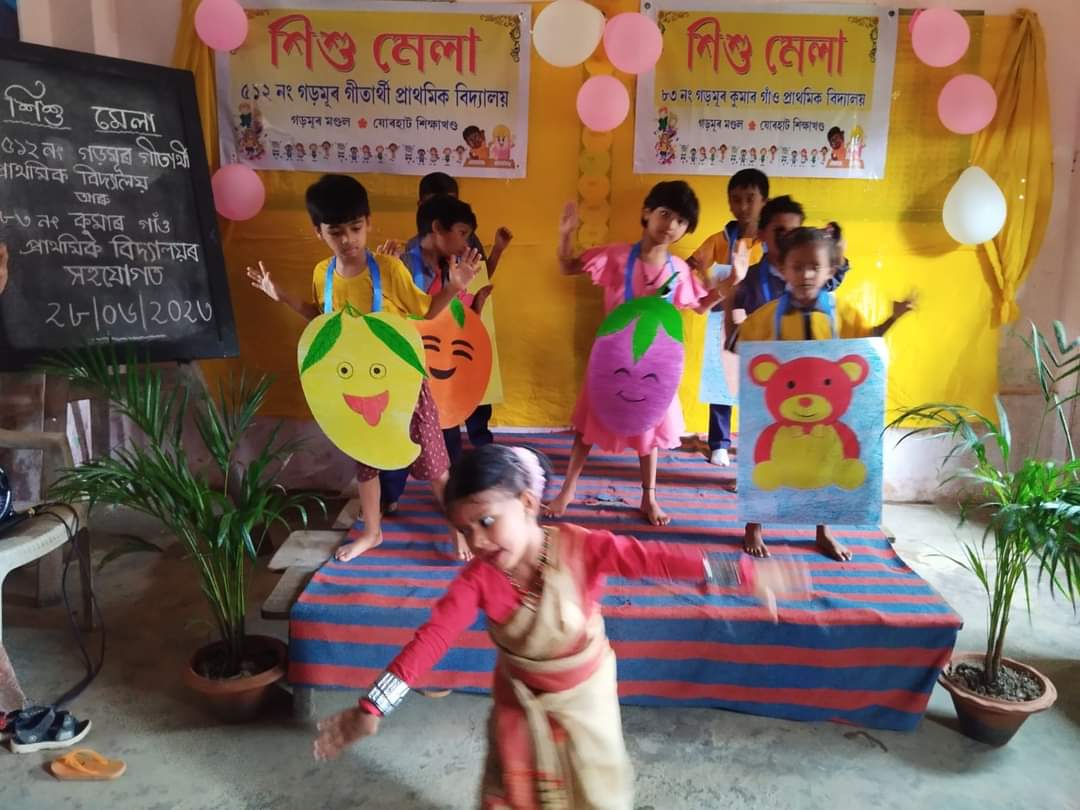- The New National Policy of Education 2020 highlighted the importance of universalizing quality Early Childhood Care and Education (ECCE) services to ensure that all students entering Grade I are school-ready.
Status of Pre-Primary Education in the State
-
- No. of Schools with Ka-Shreni (Pre-Primary) enrolment-23,854
- No. of students in Ka-Shreni-2,45,887
- No. of Schools having Ka-Shreni with AWC in the Same Campus-11,011
- No. of Schools having Ka-Shreni without AWC in the Same Campus-12,843
- Total No. of Schools having Ka-Shreni (with and without AWC in the same campus)-23,854
Best Practices on ECCE interventions:
- Development of FLN tuned Work Books for the students of Ka-Shreni (Balvatika)
- Implementation of Pictorial Activity Calendar through parental care: Pictorial Activity Calendar will be distributed in 8 mediums (languages) viz Assamese, Bengali, Manipuri, Hmar, Garo, Bodo, English, Hindi in the year 2024-25
- Teacher Handbook (with weekly Planner) - The Teacher Handbook which is developed in 8 mediums viz. Assamese, Bengali, Bodo, Hindi, English, Garo, Hmar, and Manipuri will be distributed among teachers in the year 2024-25.
- Teacher Training on ECCE with the provision of Internship: 5 days Training on ECCE was conducted for the teachers who are associated with Teaching of Pre-Primary Education in the schools. The Module of the training was developed by SCERT, Assam
- 21,521 No. of teachers associated with Pre -Primary classes were trained by Resource Persons at the Block level
- Special Features of the Teacher Training for the year 2024-25
Based on the Annual Training Calendar
- Provision of Internship between two phases of the training.
- TNA conducted among 22,057 number of target teachers out of which 10,021 teachers participated in the TNA.
- Detail analysis of the TNA before starting the development of the Training module.
- Module developed in 8 mediums.
- Activity based Module and hands on training.
- Involvement of Partner Department/Organisations in module development and various levels of training under the leadership of SCERT.
- Ensuring of deputation of teachers (for the training) in a planned manner to ensure regular classroom transactions of the schools during teacher training.
- App-based Monitoring Mechanism.
Interventions:
SHISUMELA for Ka-shreni/Balvatika
